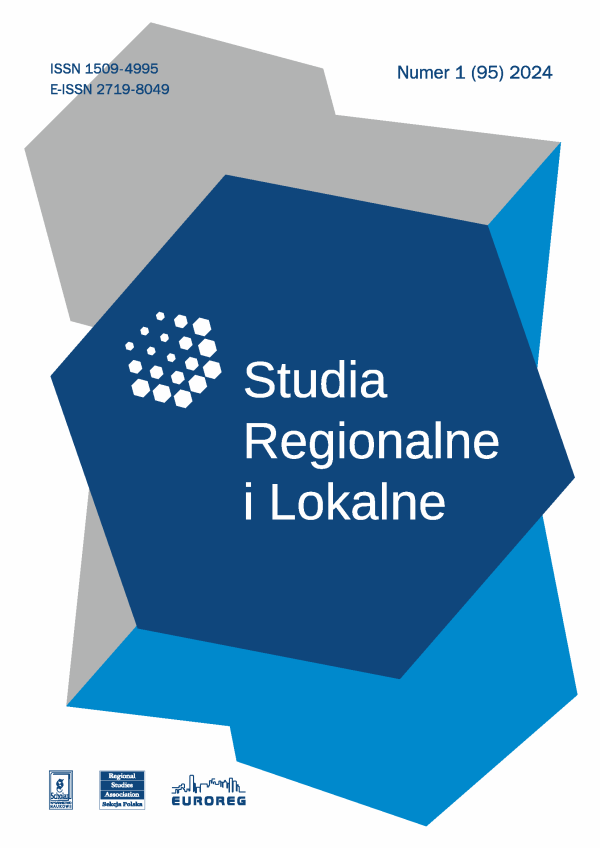Published in
1(95)2024

- Tomasz Skica, Lejla Lazović-Pita, Ademir AbdićThe Determinants of Sub-Central Government’s Efficiency: The Case of Polish Districts[more]
- Khrystyna Prytula, Ewa Łaźniewska, Anna Maksymenko, Yaroslava Kalat, Olha DemedyukIncreasing Local Community Resilience in the EU-Ukraine Cross-Border Area[more]
- Grzegorz Gorzelak“The Diagnosis of the State of Poland’s Spatial Economy in the Period of 1981–1983” – Conclusions and Inspirations[more]
- Agata MrózEmpowering of Rural Areas Due to the Evolution of EU Cohesion Policy[more]
- Paweł SwianiewiczThe Evolution of Styles of Local Political Leadership: The Gap Between the Citizens’ Preferences and Their Perceived Styles of Leadership of Polish City Mayors[more]
- Martyna SydorówThe Functioning of Public Transport Connections in the Słupsk–Ustka Functional Urban Area and the Phenomenon of Transport Exclusion[more]
- Katarzyna Kuzara, Robert SzmytkieAn Attempt to Estimate the Actual Population in the Suburban Zone of Wrocław[more]
- Maciej J. NowakJacek Rudewicz, Paweł Czapliński, Marketing miejsc. Ujęcie przestrzenne, Wydawnictwo Uniwersytetu Szczecińskiego, Szczecin 2023, 196 s. (recenzja)[more]


